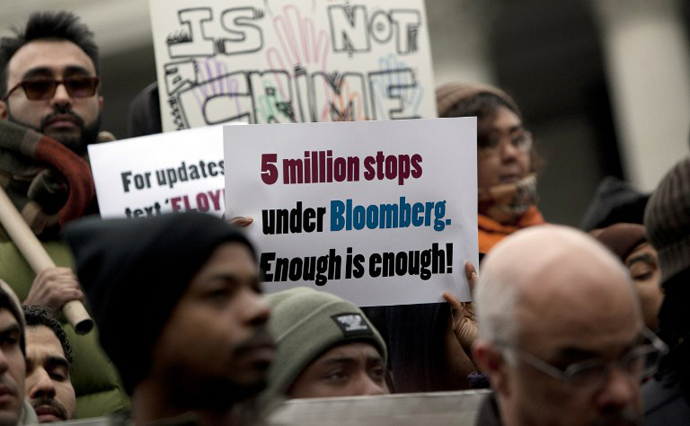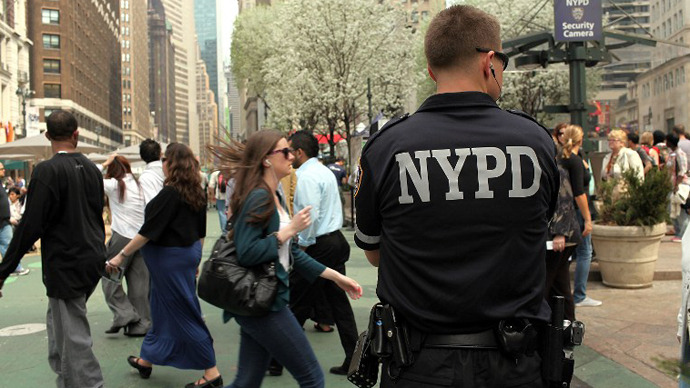Cops who testified against the New York City Police Department’s stop-and-frisk policy have faced retribution from higher-ups and officers who subscribe to the idea that the controversial tactic, deemed unconstitutional by major courts, is fair and legal.
NYPD officer Pedro Serrano told the Associated Press he’s faced harassment at work after testifying that stop-and-frisk, which was enacted in 2002, targets minorities and requires patrol officers to meet monthly quotas.
Serrano said that, along with finding a sticker of a rat pasted to his locker, he says he's been micromanaged - including transferral to a different precinct to work an overnight shift. He also claimed that he was refused overtime hours amid an otherwise erratic schedule.
“A lot of people told me not to come forward because of what would happen – they said the department would come after me,” Serrano said. “But I’ve been thinking about it since 2007. I felt I couldn’t keep quiet.”
Serrano, along with fellow officers Adrian Schoolcraft and Adhyl Polcano, secretly recorded hours of patrol briefings and meetings with superior officers. The audio was played during the current federal trial meant to determine if black and Hispanic men are targeted by NYPD cops seeking to boost their numbers.
Polcano testified that he was told he needed to have 20 summonses, five street stops and one arrest each month.
“I was extremely bothered by what I was seeing out
there,” he said on the stand. “The racial profiling, the
arresting people for no reason, being called to scenes that I did
not observe a violation and being forced to write a summons that I
didn’t observe.”

Polcano was suspended from duty and charged with filing false arrest paperwork after he detailed a list of grievances to the police department’s internal affairs. He now works in a video review department. Schoolcraft, who remains suspended, did not testify at the trial because he has filed his own federal suit accusing superior officers of forcefully taking him to a psychiatric hospital in 2009.
Other officers who testified painted Serrano’s complaints as an unfortunate but necessary part of the job. Joseph Esposito, the former chief of the department, testified that most officers “leave their house every day to go to work to protect the city. They have the best intentions all the time, and they do it. There is a small percentage…we’re talking about in any profession, there is a group that will try to do the least amount and get paid the most.”
The alleged harassment would fit in the narrative of the NYPD. In the early 1970s plainclothes officer Frank Serpico accused the department of widespread corruption only to be shot in the face during a later investigation. Labeled a traitor by the police but a hero by others, Serpico was portrayed by Al Pacino in a popular eponymous movie chronicling his story two years later.
During an interview with the Associated Press Serpico said recent events prove NYPD groupthink hasn’t evolved past a “kill the messenger” mentality.
“I’ve become their grandfather,” he said. “They don’t want nothing. They just want somebody who knows what they’re going through. I give them moral support.”
The trial has been underway for more than a month, and recently included testimony from a parade of officers trying to discredit Polcano and Serrano as malcontents who often caused trouble. NYPD policy dictates that officers are required to report corruption without fear of retribution.
“It hasn’t been a picnic,” Serrano said. “They have their methods of dealing with someone like me.”

